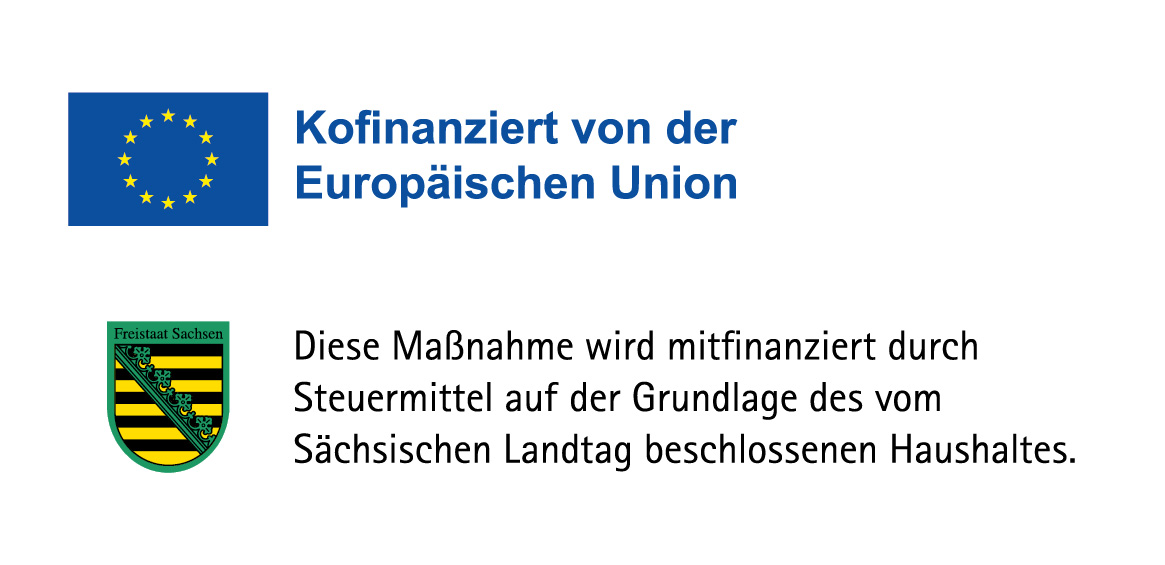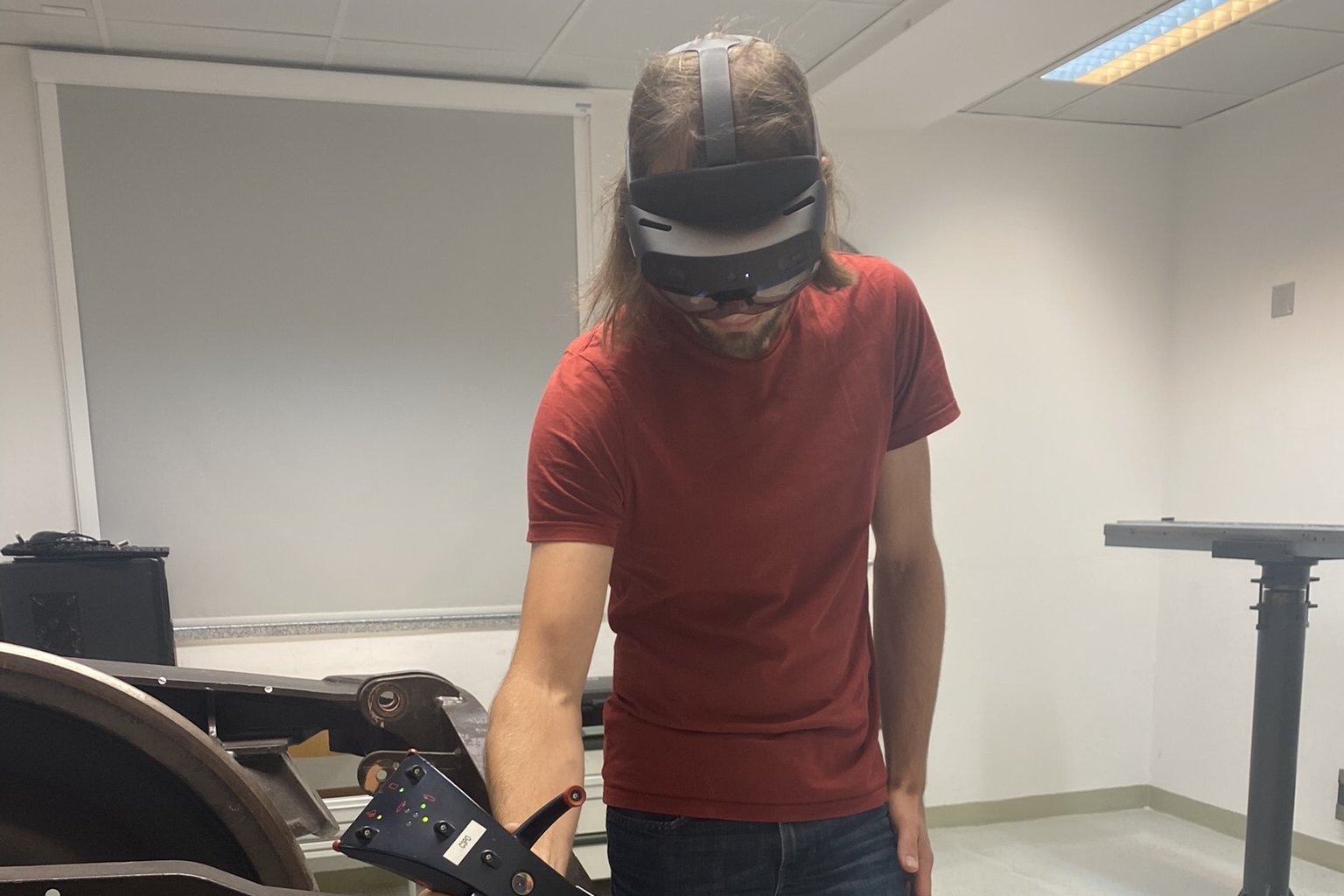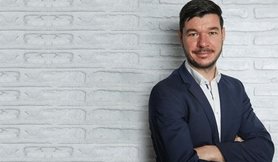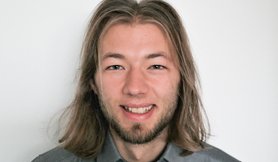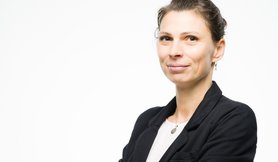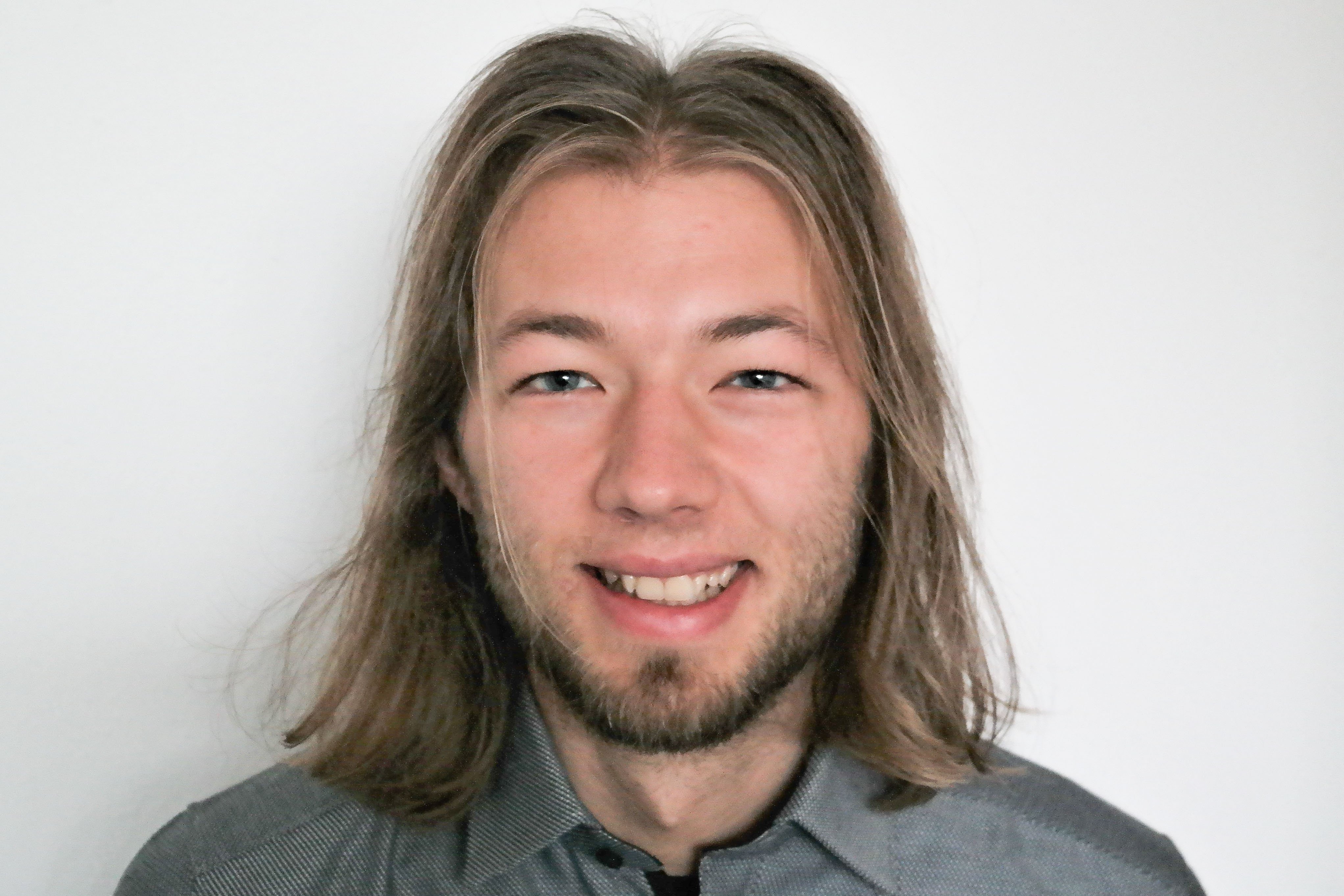
Portrait of doctoral candidates: Emanuel Schütz
The next one in the series ‘portrait of doctoral candidates‘ is Emanuel Schütz. He also started his doctorate at HTW Dresden in 2025 as part of the ESF Plus doctoral scholarship. HTW Dresden supports doctoral candidates in financing their cooperative doctoral project, e.g. with an ESF PLUS doctoral scholarship as part of the ‘Cooperation State Innovation Doctorates’ programme.
This year, five young researchers were able to start their doctoral projects at the university. One of them is Emanuel Schütz who is being supervised by Prof. Dr.-Ing. Robin Ullrich (Faculty of Geoinformation). We asked him a few questions to get to know him and his research better.
You are welcome to introduce yourself and briefly explain your PhD topic.
I studied Geoinformatics at the University of Applied Sciences in Munich for my Bachelor's degree and Geomatics for my Master's degree. I got to know Professor Ullrich, who was in Munich at the time. He then supervised both of my theses and that's how we got in touch.
I worked in industry for various engineering service providers in the automotive sector. My doctoral thesis deals with high-precision AR (augmented reality) in industrial surveying. My bachelor's thesis was the preparatory work for a research project and that's where the topic came up. Initially, I looked into it for an engineering firm that wanted to deal with the topic, but we didn't come to a conclusion there. I then pursued the topic a little further in my Master's thesis and created a kind of proof of concept. Now we want to look at it again properly in the form of a doctorate.
And which resources and networks help you the most in your doctorate or your research?
Since I've been working more with computer science, i.e. algorithms and codes, GitHub is particularly interesting. Otherwise, when it comes to background information, Research Gate and Google Scholar. Especially with regard to the doctorate in general, how to publish something and organisation, exchanging ideas with other doctoral candidates is of course ideal. LinkedIn is also practical to stay up to date and the graduate service with its many workshops is also a great help.
What would you have liked to have known earlier or perhaps before your doctorate?
I'll probably find out later, as I'm just starting out. I was also employed for a research project at Munich University of Applied Sciences during my studies and was able to make a lot of contacts with the doctoral students there. So I hope that I'm quite well prepared, know what to look out for and what it's like to work in research.
Even though you haven't been doing your doctorate for that long, could you tell us what a typical day looks like for you at the moment?
At the moment I'm doing a lot of programming and sometimes I come across problems that keep me busy. If I have an idea, I get up at four in the morning and try it out. Sometimes the days are quite long until a problem is solved, but when it comes about writing I set myself a schedule.
Do you already know how to proceed afterwards?
Depending on how my topic evolves. Of course, I'm also trying to make lots of contacts at the moment. After the doctorate, founding a start-up might be a goal. But I could also imagine teaching. It will now become clear in practice when I actually do some lessons. On the whole, I would definitely really enjoy staying in research. In whatever form.
About the ESF PLUS doctoral programme
The EU and the Free State of Saxony use the ESF PLUS directive to fund projects in the area of doctoral studies, among others. The aim of the ESF doctoral scholarships is to utilise the individual educational potential of academic specialists, especially women, by expanding their skills with regard to a stable, green, sustainable and digital economy in the Free State of Saxony. Eligible projects are state innovation doctorates, industrial doctorates, projects to reconcile family and academic career, combination of industrial doctorates and projects to reconcile family and academic career with a duration of up to four years. A basic scholarship, for example, is funded with 1,700.00 euros.
Weitere Dokumente/ Antragsformulare finden Sie hier: https://www.htw-dresden.de/en/hochschule/aktuelles/translate-to-english-news
